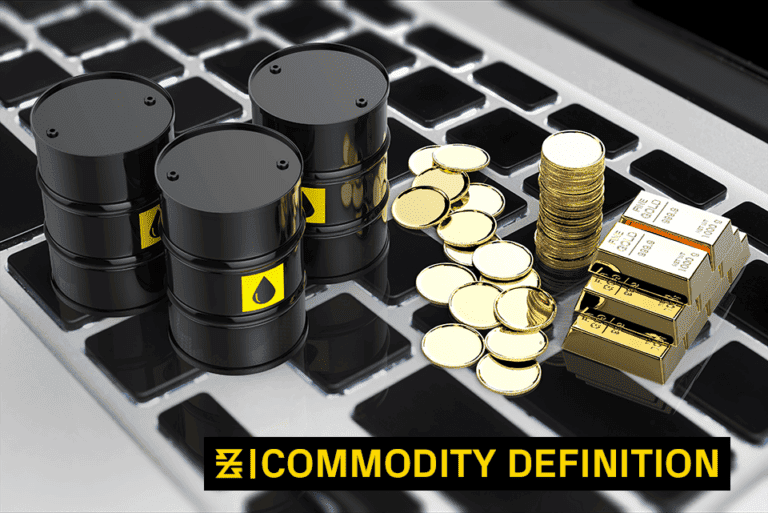- CFDs & Forex Trading | Regulated Online Trading
- About Us
- Trading
- Platforms
- Resources
- Partners
- Research
Search
×

You may have heard that commodity prices are at historic highs. In fact, the prices of some commodities will rise even more in the coming years.
As a budding trader, it is important to understand the definition of a commodity and how to exchange these assets.
Keep reading if you are looking for a commodity definition and want to understand the role of commodities in a diversified portfolio.

The word commodity refers to various raw materials that are fundamental to human society. They are physical, tangible products and their price will be the same no matter who produces them or where they come from.
The trade of commodities is one of the oldest forms of exchange.
There are several commodity markets, including natural resources, agricultural products, and energy products.
Here are a few examples of items included in a tradable commodity definition:
Commodities like crude oil and food products are considered strategic commodities as a nation cannot function without them. However, there are dozens of different types of commodities that are bought and sold every day.
The current global situation gives us the perfect example of how commodity prices work.
The war in Ukraine has blocked the supply of grain as well as fertilizer needed by farmers around the globe. This has spiked the prices of basic goods. The conflict has also sent the prices of oil and gas soaring.
This is because the conflict has decreased the supply of these vital commodities. Supply and demand is the main driver of commodity prices.
Some factors influencing supply and demand include:
People will often buy commodities in times of uncertainty and high inflation because they maintain value. Their prices will also rise along with the prices of a particular good or service.
This is why it is a good idea for any retail investor to include some commodities in their investment portfolio.
Commodities are exchanged via futures trading. This is a form of speculation on the future price of a particular commodity. You will sign a derivative contract to buy or sell the commodity at a specific price on a specific date.
There are different categories of commodities buyers who engage in commodity trading.
One is the producer or buyer of a commodity who wants to hedge against future price fluctuations. This includes manufacturers who will eventually take delivery of the commodity.
Another is the purely speculative investor who doesn’t want to buy a physical barrel of crude oil to keep at home. This trader seeks only to increase their profit margins by benefiting from the volatile price fluctuations of commodities. Trading CFDs on crude oil has become very popular in the last decade since many traders find it very convenient to exchange contracts that have no expiration dates unlike futures contracts.
Commodities are also traded on commodity exchanges such as the New York Mercantile Exchange (NYMEX).
You can also invest in the stocks of companies involved in the mining or refining of commodities. Some traders will also invest in exchange-traded funds.
Trading in commodities can be risky, but these assets can help protect you from inflation and diversify your portfolio.
Now that you have a commodity definition in mind, it is time to find the right trading platform and get started. Baxia offers trading solutions to beginners and professionals.
Create an account to start trading today.
Start placing forex trades with a Baxia trading account
SHARE THIS ARTICLE:
Related Articles
Looking for more?
Explore our Education Center
View our collection of free education resources dedicated to help you become a more informed and confident trader.
BAXIA GLOBAL LIMITED
Join the community
Risk Warning: Margin trading involves a high level of risk, and may not be suitable for all investors. You should carefully consider your objectives, financial situation, needs and level of experience before entering into any margined transactions with Baxia Markets, and seek independent advice if necessary. Forex and CFDs are highly leveraged products which mean both gains and losses are magnified. You should only trade in these products if you fully understand the risks involved and can afford losses without adversely affecting your lifestyle (including the risk of losing the entirety of your initial investment). You must assess and consider them carefully before making any decision about using our products or services.
Baxia Global Limited is a company registered in Seychelles with registration number: 8426970-1, and is regulated by the Financial Services Authority of Seychelles with License number: SD104.
Baxia Limited is a company registered in The Bahamas with registration number: 177330 B, and is licensed and regulated by The Securities Commission of The Bahamas (SCB), (SIA-F234).
The information on this website is general in nature and doesn’t take into account your personal objectives, financial circumstances, or needs. It is not targeted at the general public of any specific country and is not intended for distribution to residents in any jurisdiction where that distribution would be unlawful or contravene regulatory requirements. Baxia Markets does not offer its services to residents of certain jurisdictions such as USA, Cuba, Sudan/Republic of Sudan, Syria, Iran, Iraq, South Sudan, Venezuela, Libya, Belarus, Afghanistan, Myanmar, Russia, Crimea, Donetsk, Luhansk, Palestine, Yemen, Zimbabwe and North Korea.